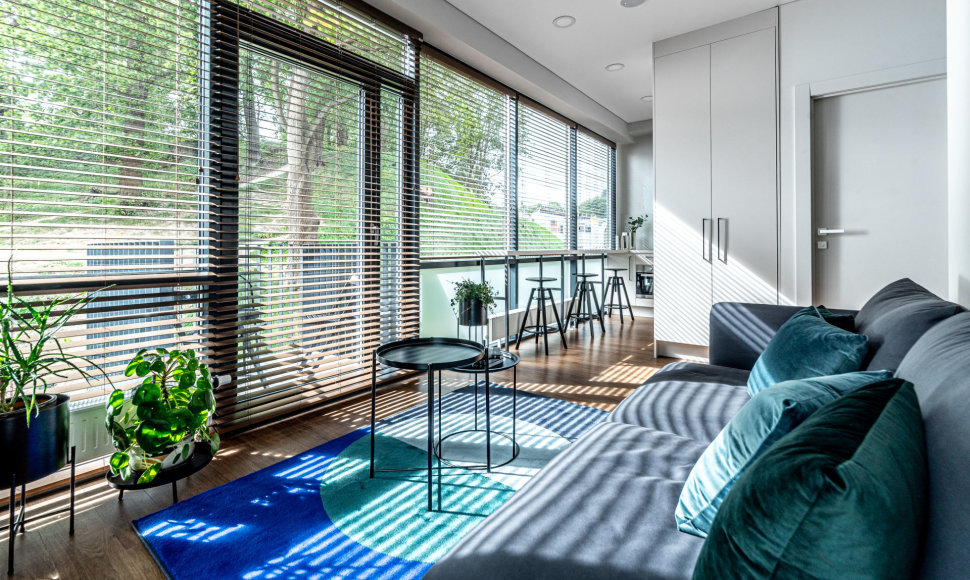These questions are on the minds of many a person looking to obtain real estate; thus it is always interesting to see what others choose.
Women more rarely want conjoined spaces
According to a representative survey commissioned from the market and public opinion research company Spinter Tyrimai by one of the largest living, business and leisure spaces creating Darnu Group, 69% of Lithuanians would not want to have their imagined perfect apartment to have walk-through rooms. Only 16% find that at least one such room would pose no issue and for another 15%, it makes no difference.
Usually, it is women, who would prefer a flat without walk-through rooms, this decision was also typically more preferred by higher-income respondents.
61% of Lithuanians would prefer when choosing their dream apartment for the bath and toilet to be separate. 29% of respondents would like them in one space, while a tenth does not care. Typically, once again, it is women, who would prefer a separate bath and toilet.
The respondents’ opinions diverged a little more in regard to other questions. Only every second one said that the kitchen and living room in their dream apartment should be separate. 39% of respondents would like to have the two spaces merged, while only 9% did not have an opinion on this. What is interesting is that typically, it is women aged 46 and older, who would prefer a separate kitchen and living room.
Why good planning matters
Sales director for Darnu Group Mantas Umbrasas says that contemporary real estate buyers rather invest not in square meters, but in a better location for the flat, albeit they still don’t want to live in cramped spaces. Thus, well planned and preferably close to the centre apartments are desired.
“The importance of good planning is constantly growing because buyers have become more rational and do not want to pay for solutions, which will not serve them or are unlikely to serve them. After all, we don’t buy a garage if we don’t have a car or don’t plan a 20 square meter kitchen if we typically eat out and are not inclined to cook,” M. Umbrasas says.
The specialist notes that in recent years, a general trend has developed on the market for the size of the most popular apartments to decrease, sacrificing square meters in the name of higher quality or even more luxurious living spaces, also their environment.
“In popular projects, there are more sales within the scope of 50 square meters, which is 10 square meters less than a decade ago,” M. Umbrasas reveals.
Men prefer shower to baths
In the eternal duel of choosing a bath or a shower, the latter wins by a slight margin. 45% of respondents said they would have a shower in their dream home, while 39% - a bath. Another 16% wouldn’t mind either option. Men are more inclined than women to have a shower cabin instead of a bath.
65% of respondents noted that to them, just one sink is enough in the bathroom, while 23% would like to have two.
The survey takers’ opinions diverged the most in selecting a ventilation system for their flat: almost a third each would choose air conditioning solutions (36%), recuperator systems (33%) or any (31%). Recuperator ventilation is typically preferred among the 18-45-year-old group, who earn the largest incomes and live in cities.
2019 Spinter Tyrimai Lithuanian public opinion survey interviewed 1014 respondents about their opinions on their imagined dream apartment and how it should be furnished.
The respondents were aged 18 to 75, with 61% of respondents being aged 26-55. 46% of respondents were residents of the large cities, 26% - of smaller towns and regional centres, while 28% were from rural areas.












